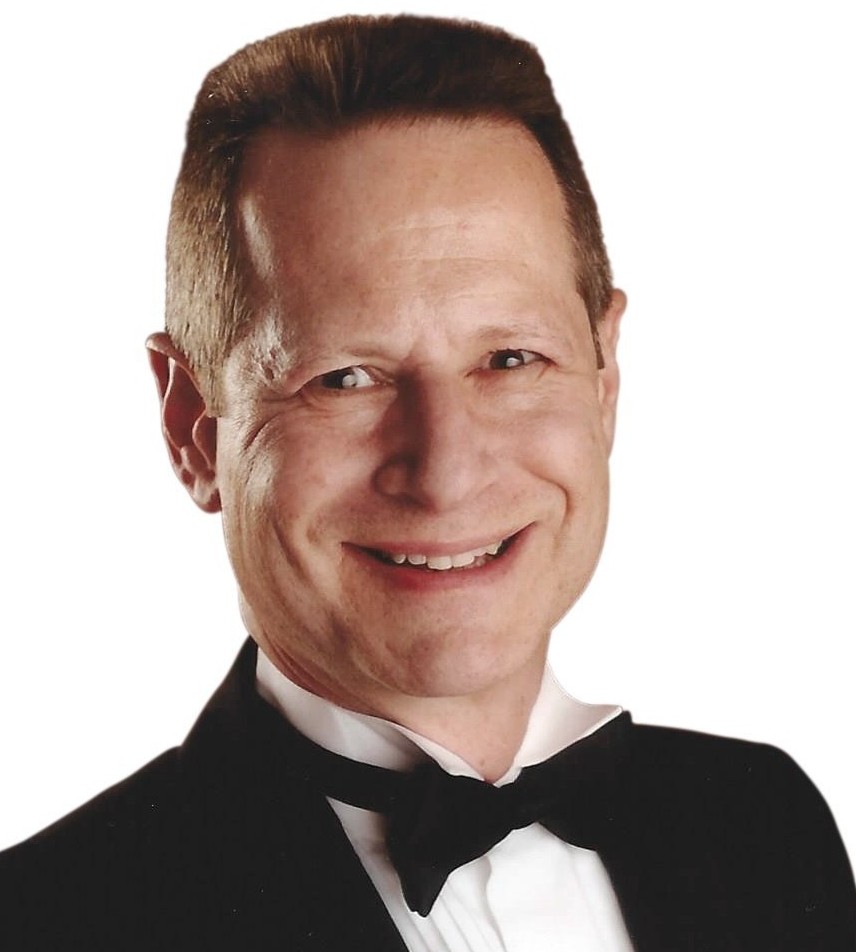
Today’s Hiring Environment: Candidates are asking – What’s the culture like? What is it like to work there? What are the people like?

Your business culture can improve, with an understanding of what is important, and what is not.
Each and every day, we face the deliberate choice of kindling relationships and forging connections or else pushing ourselves deeper into retreat. After all, most of us aren’t sculptors working alone, chipping away at marble in a studio. That’s not the way we work in today’s collaborative world. We need others—everyone does.
What’s true for individuals applies doubly to leaders who also must find a way to help their teams forge and reinforce connections. Before Covid, I intuitively knew about the importance of community and connections, but I never really made it a major focus. Like everyone, I assumed it happened organically—with places to go, people to see.
Now, connectivity is inorganic—it can only happen with deliberate action. This awareness needs to inform and shape our thinking. The essence of any leadership journey is connecting with others and transporting them from one place to another—inspiring them to believe in what they can achieve.
All of us want the same basic thing—we hear it all the time. What’s the culture like? What is it like to work there? What are the people like?
What they’re really asking—in many different ways and in different words—is simply “How will I fit it in?”
We know where this is coming from. We’re all vulnerable, we all have insecurities. We want to be loved, to belong, to be part of something bigger than ourselves.
When we feel connected, we fit in. When we fit in, we belong. And when we belong, we gain a stronger sense of ourselves and who we are. Here are some thoughts:
• “We need uber-connectivity.” That was the unanimous feeling from our leadership team meeting this week. In fact, as our team discussed, connectivity is the issue facing companies right now. But are leaders aware of just how big a problem this really is for people? Once we’re aware—we need to do something about it. This starts by making connectivity into an action verb—showing others, by our words and actions, how to embody the pursuit of connectivity in our daily lives. “It’s Metcalfe’s Law in action,” Jean-Marc Laouchez, president of our Korn Ferry Institute, said this week. “The value of our network is a function of the number of connections. It expands exponentially with every connection we add.” It happens person-to-person, from one to many, as we become part of something bigger than ourselves.
• Connect, give feedback—repeat. Earlier this week, I was invited to tape a discussion for 150 high-potential leaders at Kaiser Permanente, a major healthcare organization, along with Arthur Southam, M.D., Executive Vice President, Health Plan Operations. When Artie and I spoke, our conversation turned to connectivity—which is top of mind for both of us—and how leaders can put it into action. Artie’s suggestion was to use feedback—and it’s a great idea. It’s a natural way for leaders to step it up, progressing from merely giving feedback to connecting meaningfully with others. Feedback is a gift—for both the giver and the receiver. The recipient has a part to play, too. As Artie observed, too often when people receive positive feedback, they shrug it off—“I was just doing my job.” But that depreciates the value! For feedback to forge a connection, it must be taken in. After all, we’re 18 months into this and nearing the end of 2021. Yet we’re still trying to help people get through by linking ourselves together, one day to the next—to see the blue sky through that tiny opening in the clouds. So it can’t just be feedback anymore; it must be “feedforward.” With intentionality and true connection, we can make explicit what used to be implicit when we were all in the same room together.
• The power of purpose. Purpose precedes the first step of every journey. Daniel Goleman gives the example of an oncologist, whose aim is to eliminate cancer and help patients live longer, more satisfying lives. To accomplish this, the oncologist may tap into values such as compassion, collaboration, and patient-centered care. With a heightened sense of purpose, the oncologist not only understands the aims and values but also can act on them. As Goleman observes: “The combination of both knowing and acting allows the oncologist to feel their pursuit has meaning and significance.” That’s all of us. We may not be treating cancer patients or performing life-saving surgeries, but we can still seek to bring good to the world around us by harnessing the power of our personal purpose.
• Top-down, bottom-up. We’re all “new” these days, onboarding ourselves into this complex world and ambiguous workscape. But do leaders ever think about it this way? To shift our thinking, we need to look both top-down and bottom-up. For perspective, I reached out to someone who joined our firm less than three weeks ago. “In this virtual environment, I’ve had to be intentional in building relationships,” Lydia Glover, one of the newest members of our Consulting team, told me the other day. “It’s all about being prepared, patient—giving yourself and others grace, and being flexible. Learn all you can about others and then find commonalities.” We all need to find ways to connect with others around the deepest, most fundamental of human needs—to be loved, to know that what we do matters, to be seen and heard, to belong.
Connectivity may, indeed, be a conundrum, but it’s also a collage—of purpose, shared interest, and fitting in. It requires awareness on the part of the person offering the connection—and courage for the person willing to forge it. The result is lasting, meaningful relationships, connecting us all.
Contributor: Gary Burnison, Korn Ferry CEO and edits by Cliff Locks, Investment Capital Growth, Managing Director and Executive Coach
Click to —> Schedule time with me.
A fantastic gift idea: Are you looking for a gift for yourself, friends, family, or colleagues? I enjoy giving Audible by Amazon as a gift, and the receipt knows you care about them. Audible online audiobook platform is where books are read to you while driving, relaxing at home, or on the go. Use any smartphone, tablet, and computer and turn it into an excellent learning resource. (Click on the Amazon logo below to get started and search for Audible.)

Cliff Locks is a trusted mentor, confidant, and advisor to CEOs, C-Level Exec, and high-potential employees to help them clarify goals, unlock their potential, and create actionable strategic plans.
Available to join your Board as a Certified Master Professional Board of Director and Advisor.
I am a trusted mentor, confidant, and advisor available by Zoom and by phone to be your right-hand man, who will make a significant contribution and impact on your way to success.
As a Trusted Mentor, Confidant, and Advisor, I support you, along with your company’s strategic and annual operating plan. This plan may include marketing, sales, product development, supply chain, hiring policies, compensation, benefits, performance management, and succession planning.
Most successful leaders enjoy talking to someone about their experiences, which is why most develop a close relationship with a Trusted Confidant—a person with whom they feel free to share their thoughts, concerns, and ideas without fear of sharing too much or being judged by the people they lead, or their colleagues and superiors. I am a sounding board who will help you to better develop and see your ideas through to fruition.
The most effective Executive find confidants who complement their strengths and sharpen their effectiveness. Bill Gates uses Steve Ballmer in this way; Warren Buffett turns to vice chairman Charlie Munger. In the end, both the Executive and their organizations benefit from these relationships.
As your trusted confidant, I am always by your side, holding your deepest secrets and never judging. Everything discussed is held in complete confidence.
What many executives feel is missing from their busy life is a trusted business person who understands the holistic complexity of both their business and personal life.
I strive to provide solid financial, business, and family expertise and serve as a dispassionate sounding board, a role I like to call “Executive Confidant.”
By holding a safe place for the Executive to work on life path issues as well as direction, I repeatedly see remarkable benefits as personal values become integrated with wealth and family decisions, enhancing a more meaningful life.
As an Executive Confidant, I welcome a confidential conversation about the most important issues facing the business leader, including:
• Strategic planning toward your visions of success and goal setting • Operations, planning, and execution • Career transition • Retirement • Legacy • Kids and money • Marriage and divorce • Health concerns • Values and life purpose • Vacations • Mentoring & depth of the executive bench • Succession planning
When I do my job well, I facilitate positive action in both your professional and personal life. This consistently has a positive benefit on impacting people within the sphere of your influence.
The job of an Executive can be lonely. For various reasons, confiding in colleagues, company associates, family members, or friends presents complications. Powerful, successful, and wealthy individuals often isolate themselves as a protective reaction because of their inability to find people they can trust and confide in.
Successful people are often surrounded by many people, yet they insulate and isolate themselves to varying levels of degree. This isolation factor is not often discussed in the same context because the assumption is that success and wealth only solve problems. The false belief is that it does not create more problems, when, in fact, sometimes it creates a unique set of new challenges. Success and wealth do not insulate you from the same pitfalls that the everyday person faces. It may give you access to better solutions perhaps, and that is what I can help you achieve. Financial business success can create unique vulnerabilities, often overlooked as most people feel that the “problems” of the wealthy are not real-life problems.
The Executive Confidant can be particularly helpful when:
• Aligning life priorities with the responsibilities of wealth. • Wanting more meaning and purpose in life. • Desiring a candid and experienced perspective. • The answers often come from within, and we cannot arrive at them easily. • Clarity often comes into focus, with skilled questions and guided discovery. The right questions can be the first step in achieving ideal outcomes.
Who can you turn to when you need to find clarity? Who is your “Executive Confidant”?
Referrals to team members or family members are always welcome.
Investment:
One-to-One – Individual payment: Strategic Coaching: $295 per month (weekly for 30 minutes to 1 hour depending on the depth of our conversation Zoom meeting).
One-to-One – Corporate payment:
i. Coaching & Leadership Development: $600 per month engagement (weekly 1 hour Zoom meeting).
ii. One-to-One Executive Coaching and Mentoring: $600 per month engagement (weekly 1 hour Zoom meeting).
iii. Increasing Top Team Performance and 1:1 Mentoring Sessions: $600 per month engagement (weekly 1 hour Zoom meeting).
iv. Planning New Futures for Senior Executives: $600 per month engagement (weekly 1 hour Zoom meeting).
Team coaching:
i. Enhancing Boardroom Effectiveness & Executive Impact Group: Starting at $15,250 per annual engagement.
ii. Strategic & Operational Planning/KPI Development: Starting at $25,500 per annual engagement.
iii. Productivity Assessment & Profitability Improvement: Starting at $25,250 per annual engagement.
iv. Sales Channel and Product Development: Starting at $25,250 per annual engagement.
v. Energy and Sustainability Efficiency Initiatives: Starting at $18,500 per annual engagement.
Board of Directors or Board of Advisors:
- Private company:
- $25,000 to $45,000 per year, depending on the number of Board and Committee meetings.
- Public company:
-
- Under $50M in revenue: $25,000 to $45,000 per year, per year, depending on the number of Board and Committee meetings.
- Micro: $50M – $500M in revenue (click for annual compensation)
- Small: $500M – $1B in revenue (click for annual compensation)
- Medium: $1B – $2.5B in revenue (click for annual compensation)
- Large: $2.5B – $10B in revenue (click for annual compensation)
- Top 200: Largest 200 in the S&P 500 (click for annual compensation)
-
Email me: [email protected] or Schedule time with me: Cliff Locks OptimizeLife #CEO #CFO #COO #BoD #CXO #Professionalpedia #TeamBuilder #success #beyourself #goals #lifeisgood #Influencer #Successful #Business #WorkLife #OfficeLife #Work #Office #Inspiration #Marketing #Tips #Leadership #BusinessIntelligence #InvestmentCapitalGrowth

